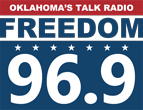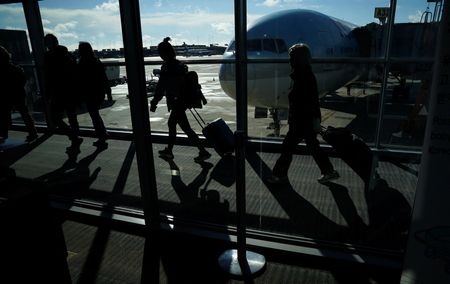By David Shepardson and David Morgan
WASHINGTON (Reuters) -The U.S. Senate late on Thursday overwhelmingly passed a broad aviation bill to boost air traffic controller staffing, increase funding to avert runway close-call incidents and speed refunds for canceled flights.
The $105 billion, five-year measure reauthorizes the Federal Aviation Administration. The bill prohibits airlines from charging fees for families to sit together and requires airplanes to be equipped with 25-hour cockpit recording devices – up from the current two-hours – and directs the FAA to deploy advanced airport surface technology to help prevent collisions.
The bill adds five daily round-trip flights at busy Washington National Airport and requires airlines to accept vouchers and credits for at least five years.
Efforts to boost aviation safety in the United States have taken on new urgency after a series of near-miss incidents and the Jan. 5 Alaska Airlines Boeing 737 MAX 9 door plug mid-air emergency.
The bill, which is expected to get final approval next week from the U.S. House of Representatives, does not raise the mandatory pilot retirement age to 67 as lawmakers had sought to do last year.
Earlier this week, lawmakers agreed to revise language to ensure quick refunds for airline passengers whose flights are canceled who bought non-refundable tickets and who are not seeking alternative flights.
The bill raises maximum civil penalties for airline consumer violations from $25,000 per violation to $75,000 and aims to address a shortage of 3,000 air traffic controllers by directing the FAA to implement improved staffing standards and to hire more inspectors, engineers and technical specialists.
Congress will not establish minimum seat size requirements, leaving that instead to the FAA. The bill requires the Transportation Department to create a dashboard that shows consumers the minimum seat size for each U.S. airline.
Congress also rejected many other consumer provisions the Biden administration sought.
The bill also reauthorizes the National Transportation Safety Board and boosts staffing at the safety investigation agency. It also seeks to boost adoption of drones and flying air taxis into the national airspace and extends through Oct. 1 existing government counter-drone authority.
(Reporting by David Shepardson and David Morgan; Editing by Jamie Freed and Diane Craft)
Brought to you by www.srnnews.com







